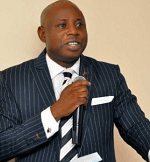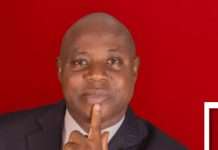President Muhammed Buhari (PMB)’s place in the history of Nigeria is assured. He is a General’s General. He took active part in the civil war and was also involved in all the military coups that eventually led to his first shot as Head of State in 1983. No one familiar with that era can forget the stern disposition to governance that was the hallmark of PMB and his able lieutenant, Major General Tunde Idiagbon’s tenure. He threw all the corrupt politicians of the day into jail and instilled discipline in the system. The War Against Indiscipline (WAI) introduced by the regime remains the reference point for all Government attempts to introduce sanity and discipline into the system till date.
PMB was overthrown by his own men, apparently due to irreconcilable differences on handling state affairs, particularly as it related to graft and discipline. PMB left the stage with his integrity intact and even when he served the much-reviled General Abacha as chairman of Petroleum Trust Fund (PTF), his reputation as a transparently honest General was not affected.
He came back in 2003 to contest the presidential election with governance integrity as his major selling point. He was rejected at the polls of that year and in 2007 and 2011. He lost the elections, not because the opponents were better or stronger but more because the elites or the ruling class were not comfortable with his stand against corrupt practices. He was much loathed in the southern part of the country, particularly in the East, for his role in the civil war and the perception of being an ethnic champion whose interest and affection is first to the Hausa/Fulanis, Muslims and Northerners in that order.
Thirst for change
However, the crass incompetence and the bad governance of the Goodluck Jonathan administration brought in a political realignment in the country which ultimately favoured the candidature of Muhammed Buhari. The Jonathan administration was very reckless in the utilisation of public fund and the integrity record of Buhari was the alternative desired.
This choice was aptly captured in Prof. Wole Soyinka’s discourse shortly before the 2015 election entitled ‘The challenge of change – A burden of choice’. He posited in the treatise that Nigeria, under Jonathan, had been subjected to ‘acts of outright fascism in a dispensation that is supposedly democratic. We have endured a season of stagnation in development and a drastic deterioration in the quality of existence’.
Soyinka concluded that Buhari was a better choice, despite whatever misgivings that many people harboured against his candidature. Buhari won the election on the popular mantra of ‘change’ and people’s desire for a better deal in governance. The same voters who rejected him three times before trooped out in large numbers to herald the presidency of the people’s General. I remember that I trekked 10 kilometres from my house to the voting centre to perform the obligatory civic duty of voting for the candidate of my choice.
What has changed?
The polity in Nigeria has taken a new turn since the inauguration of the new president on 29 May 2015. As expected, the government has moved against the public officials who had stolen government fund in the immediate past administration. We do not have many convictions yet but the revelations have been monumental.
However, the much promised ‘new life’ for the people is yet to materialise. Rather than any visible or measurable improvement in the living conditions in the country, the economic situation degenerated and life became unbearable for the citizens. The nation went into economic recession, which turned our ‘world’ upside down. The local currency, naira, lost its value against the United States’ dollar and other major international currencies; inflation skyrocketed; civil servants were not paid; and there were job losses in the private sector as many companies downgraded their operations or shut down.
No matter the explanations offered by

government or economic analysts, the truth remains that there is hunger in the land and people are crying for help again. The unpleasant situation was compounded by the failing health of the president, which forced him to leave the country for a lengthy period in search of treatment in a foreign land.
The ‘men of yesterday’ latched on to the opportunity to regain their voice. They are now mocking the choice of PMB in the 2015 presidential election and are also telling us that they would have done much better if we had maintained the status quo in governance.
I have experienced the debilitating effects of the current economic situation in my business and private engagements and I know that the story is the same for most Nigerians, particularly those in the low to medium social class. However, I will not put all the blame for our current misfortune entirely on PMB, his government or party. I have written on this subject before and I remain resolute in the conviction that the foundation for what we are seeing now was laid by the Jonathan administration, particularly for the reckless looting of fund.
This stand, however, will not stop me from asking the question: Could PMB and his government have done better? The answer is yes. They could have done much better if they had not allowed certain ‘ingredients’ to be missing in the ‘potion’ that they have served us in the past two years.
Power of innovation
There was a year in my career when we adopted ‘INNOVATION, SPEED & GROWTH’ as the budget theme and the ‘battle cry’ for the organisation’s activities in that year and extending to the subsequent periods. Innovation refers to novelty, ideas or new method and is crucial to the continuing success of any organisation. The entire organisation was ‘on fire’ for new ways of doing things, either on product development, processes or promotion and once these ideas were firmly rooted, execution was swift and the net result was growth in revenue, market share and profitability.
“Changes call for innovation and innovation leads to progress,” says Li Keqiang. We danced to the ‘change’ music played by the PMB’s party without a full understanding of the innovation that would accompany the change. Nigeria has some fundamental issues which will require an innovative approach to address. PMB is not unaware of these issues: ethnic fault lines, marginalisation cries, nepotism, cronyism, brazen corruption, attitudinal deficiencies, import dependence, crude oil dependence, infrastructural deficits, poor maintenance culture, abject poverty, etc.
Has there been any innovation surrounding the handling of these issues since PMB took over? The president has the experience and exposure which should have prepared him for the job adequately but did he get himself acquainted with the new ways of solving old problems? For instance, PMB is perceived, rightly or wrongly, to be selectively biased in favour of his ethnic group and very sympathetic to Islam over other religions; in what ways has his actions, inactions, utterances, body languages, etc, remove or tend to reinforce this perception?
According to Steve Jobs (1955 – 2011), ‘Innovation distinguishes between a leader and a follower’. PMB’s credentials as a leader at this crucial time and phase of nationhood cannot be appreciated without him adopting innovativeness in his handling of government affairs.
Perhaps, the current increased tempo of agitation across the land could have been softened if PMB had been more sensitive to the issues and adopted a different, creative and innovative line of engagements.
Again, we cannot continue to use the methods of the 1980s to solve the problems of the 21st century. What are the new things that we will do on education, health and power? At what speed are we going to get these things done? Is taciturnity still a great virtue in this jet age? The speed of action is crucial as the world is very dynamic and time waits for no one.
Timeliness is key
The world is moving on but we are still behind on so many indices; and yet, we seem not to be in a hurry to do anything. It took about six months for the cabinet to be assembled and I am still at a loss why this was so as there were so many things to be done and quickly too. It was this slow decision-making process that turned the National Assembly into a near ‘enemy’ territory in the early days of this government.
There are still many things waiting for presidential attention, even two years after assumption of office. The opponents of this regime have seized the opportunity of the snail speed of the government to re-group and they are getting stronger by the day. We need to get things done faster and build the momentum that will drive the needed change.
When we combine innovation with swift execution of policies, we will experience the desired growth in our economy and the living conditions of our people. I still believe in the ability of President Mohammed Buhari to lead this country to the desired destination. He is the man for the moment but we need things to be done innovatively, faster and with growth in mind. God bless Nigeria.








